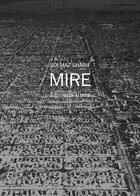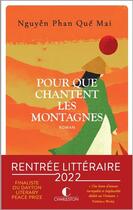-
Nombre de pages : (-)
-
Collection :
(-)
-
Genre :
(-)
-
Thème :
Non attribué
-
Prix littéraire(s) :
(-)
Résumé:
Daily I sit with the language they've madeof our languageto NEUTRALIZE the CAPABILITY of LOW DOLLAR VALUE ITEMs like you.You are what is referred to as a "CASUALTY."--from "Personal Effects"Solmaz Sharif's astonishing first book, Look, asks us to see the ongoing costs of war as the... Voir plus
Daily I sit with the language they've madeof our languageto NEUTRALIZE the CAPABILITY of LOW DOLLAR VALUE ITEMs like you.You are what is referred to as a "CASUALTY."--from "Personal Effects"Solmaz Sharif's astonishing first book, Look, asks us to see the ongoing costs of war as the unbearable loss of human lives and also the insidious abuses against our everyday speech. In this virtuosic array of poems, lists, shards, and sequences, Sharif assembles her family's and her own fragmented narratives in the aftermath of warfare. Those repercussions echo into the present day, in the grief for those killed in America's invasions of Afghanistan and Iraq, and in the discrimination endured at the checkpoints of daily encounter.At the same time, these poems point to the ways violence is conducted against our language. Throughout this collection are words and phrases lifted from the Department of Defense Dictionary of Military and Associated Terms; in their seamless inclusion, Sharif exposes the devastating euphemisms deployed to sterilize the language, control its effects, and sway our collective resolve. But Sharif refuses to accept this terminology as given, and instead turns it back on its perpetrators. "Let it matter what we call a thing," she writes. "Let me look at you."
Donner votre avis















